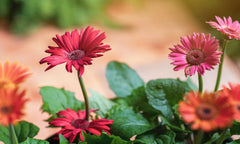The word "coldness" that often appears in women's conversations. It can be seen that many women are feeling some kind of coldness. However, most people do not know what exactly is sensitivity to cold, what will happen if it is left untreated, and whether there are any medicines to treat it. In this article, we introduce not only the causes and symptoms of coldness, but also types of coldness and recommended herbal medicines. There is also a recommended service for those who do not have time to go to the hospital but would like to try Chinese medicine. If you are worried about coldness, please refer to it.
Find out in this article
- Causes and symptoms of sensitivity to cold
- Effective Kampo medicines for cold symptoms
- About Kampo medicine regular delivery service
[I can understand you in just 3 minutes]
Click here for a free medical interview supervised by a doctor that can be done on LINE
What is sensitivity to cold
Coldness is a condition in which the blood cannot reach the capillaries in the limbs due to poor blood flow, causing the body temperature in those areas to drop . There are some parts where it can't be helped that your hands and feet get cold in the cold season, but if your hands and feet are colder than the temperature, or if you feel cold even in the middle of summer regardless of the temperature, you may be susceptible to coldness. In Western medicine, sensitivity to cold is treated as a physical constitution, but in Eastern medicine, sensitivity to cold is considered to be the cause of all kinds of illnesses, and is considered a problem that needs to be resolved.
Causes and symptoms of coldness
There are various causes of coldness, but it is said that the main causes are lack of exercise, a decline in basal metabolism, disordered eating habits, smoking, and lack of iron . Due to these causes, poor blood circulation and a drop in body temperature cause sensitivity to cold. In one word, coldness is different from person to person. There are types where the hands and feet, which are the extremities of the body, get cold, and types where the internal organs get cold. There are also people who only get cold in the lower half of the body, and people who get cold all over the body due to a decrease in basal metabolism.
disease caused by coldness
As it is said that sensitivity to cold is the source of all kinds of diseases, it can cause various diseases. First of all, when the function of the internal organs deteriorates, the immune system weakens, making it easier to catch infectious diseases such as colds. In addition, coldness is often the cause of diarrhea, irregular menstruation, and stiff shoulders. In addition, it is said that cold weather triggers allergic rhinitis, cystitis, and collagen diseases that cause abnormalities in immune function. Irregular menstruation can also lead to infertility . A survey of coldness among young women reported that the severity of coldness is related to infertility1).
Introducing herbal medicines that are effective against poor circulation by type
In oriental medicine, we use different herbal medicines depending on the cause and the place where you feel cold even if you say coldness in a word. Here, we will introduce what types of coldness are the whole body type, extremity type, upper fever lower cold type, sensory abnormal type, and symptomatic type, and what Kampo medicines are effective .
Explain what type of coldness each is
Whole body type
As the name suggests, the whole body type is a state in which the whole body is cold. The main cause is that the body's heat production is low and the metabolism is slowing down . It is said that it is easy to feel loss of appetite, loss of energy, fatigue and malaise. If you are concerned about loss of appetite, use Rikkunshito, and if you are concerned about bloating or pain, use Daikenchuto. Light exercise such as walking and getting enough sleep are also important. Also, avoid cold drinks and food as much as possible, and always be conscious of warming your body.
extremity type
A characteristic of this type of extremity coldness is that the limbs feel cold because the blood does not circulate to the tip of the extremities. It is often seen in young women, and is said to be caused by unreasonable diets and fatigue . Also, it is easy to get cold when there is little muscle mass. For such people, toki shakuyakusan and tokishigyaku kagoshuyu shokyoto are used. Together with Keishibukuryogan and Kamishoyosan, Tokishakuyakusan is known as one of the three major herbal medicines for women, and is sometimes used for amenorrhea.
Upper heat lower cold type
The type in which the blood and qi circulation is poor and the upper body is hot and the lower body is cold is called the upper-heat-lower-cold type. At first glance, it is characteristic of this sensitivity to cold that we often do not realize that we are cold because our faces are flushed . Many people suffer from irritability, headaches, and constipation. Keishibukuryogan is a herbal medicine that is said to be effective for upper fever and lower cold. On a daily basis, consciously warm your lower body by taking a footbath or a half-body bath. Avoid wearing clothes that keep you in the same position or that constrict your body.
sensory abnormality
Excessive stress affects the autonomic nervous system, and the type that causes poor blood flow and makes you feel cold is called the sensory abnormal type. Symptoms include inability to sleep despite feeling tired, loss of appetite, and lack of concentration . If you are irritated and cannot sleep, Kamishoyosan may be prescribed. People with sensory abnormalities need to change their mood without accumulating stress. Deep breathing is also effective. Try to improve your physical condition by incorporating slow exercises such as yoga, tai chi, and stretching.
Also read the following articles
Introduction of effective herbal medicines for stress
Symptomatic
Specific symptoms such as stiff shoulders, headaches, and allergies appear first in the body, and when the cause is investigated, the type of sensitivity to cold that is related to coldness is called a symptomatic type . Kampo is selected according to each symptom because it is a symptom-based condition. For example, Goshuyuto is sometimes used for a headache caused by coldness accompanied by nausea. For symptomatic patients, it is effective to warm the abdomen and pit of the stomach with a body warmer, avoid cold food and drink, and eat hot meals. Be careful not to cool your body on a daily basis.
You can receive a free medical interview supervised by a doctor on LINE
Even if you understand that Kampo is effective for colds, there may be some people who say, "I don't know where to see a doctor," or "I'm too busy to go to the hospital." "Kampo by canvas" is recommended for such people. A pharmacist, who is a medicine expert, will introduce you to Chinese herbal medicines that suit your constitution and women's unique worries on LINE from the comfort of your own home . You can buy herbal medicines at a reasonable price than going to a herbal pharmacy, and if you use a regular service, you can get it delivered before it runs out with free nationwide shipping.
▼ You can consult Kampo on LINE
Click here for a free consultation supervised by a doctor
summary
Many women feel cold, such as cold hands and feet, and thick socks and cardigans are essential even in summer, but few people think about treating it as a disease. However, the cold is said to be the source of all kinds of diseases, and it is a factor of many diseases. Specifically, it has been reported that it may cause decreased breast milk secretion, decreased immunity, premature birth and miscarriage 2). Try to improve your constitution by keeping your body cool, doing light exercise, and getting plenty of rest .
[I can understand you in just 3 minutes]
Click here for a free medical interview supervised by a doctor that can be done on LINE
References
1) Maiko Shirai et al., “Relationship between cold symptoms and infertility in women,” Journal of the Japanese Society of Acupuncture and Moxibustion, Vol. 66, No. 3, 2016 https://www.jstage.jst.go.jp/article/jjsam/ 66/3/66_180/_pdf/-char/ja
2) Yukiyo Nakamura, ``Conceptual analysis of ``coldness'', Journal of the Japanese Society of Nursing Science, Vol.30, No.1, 2010 https://www.jstage.jst.go.jp/article/jans/30/1/ 30_1_1_62/_pdf









![【infertility? I want to know if I can get pregnant] Let's self-check! Introduce how to improve](http://get-canvas.com/cdn/shop/articles/20220805_7a511435-34f1-4201-ae60-02eb43651779_medium.jpg?v=1755488894)

